The Philosophy department is excited to offer the following courses for the Advent 2021 semester. Browse the sampling of courses below and contact our amazing Professors with specific questions.
Phil 101 a /B: Topics in Philosophy: God, Death and the Meaning of Life
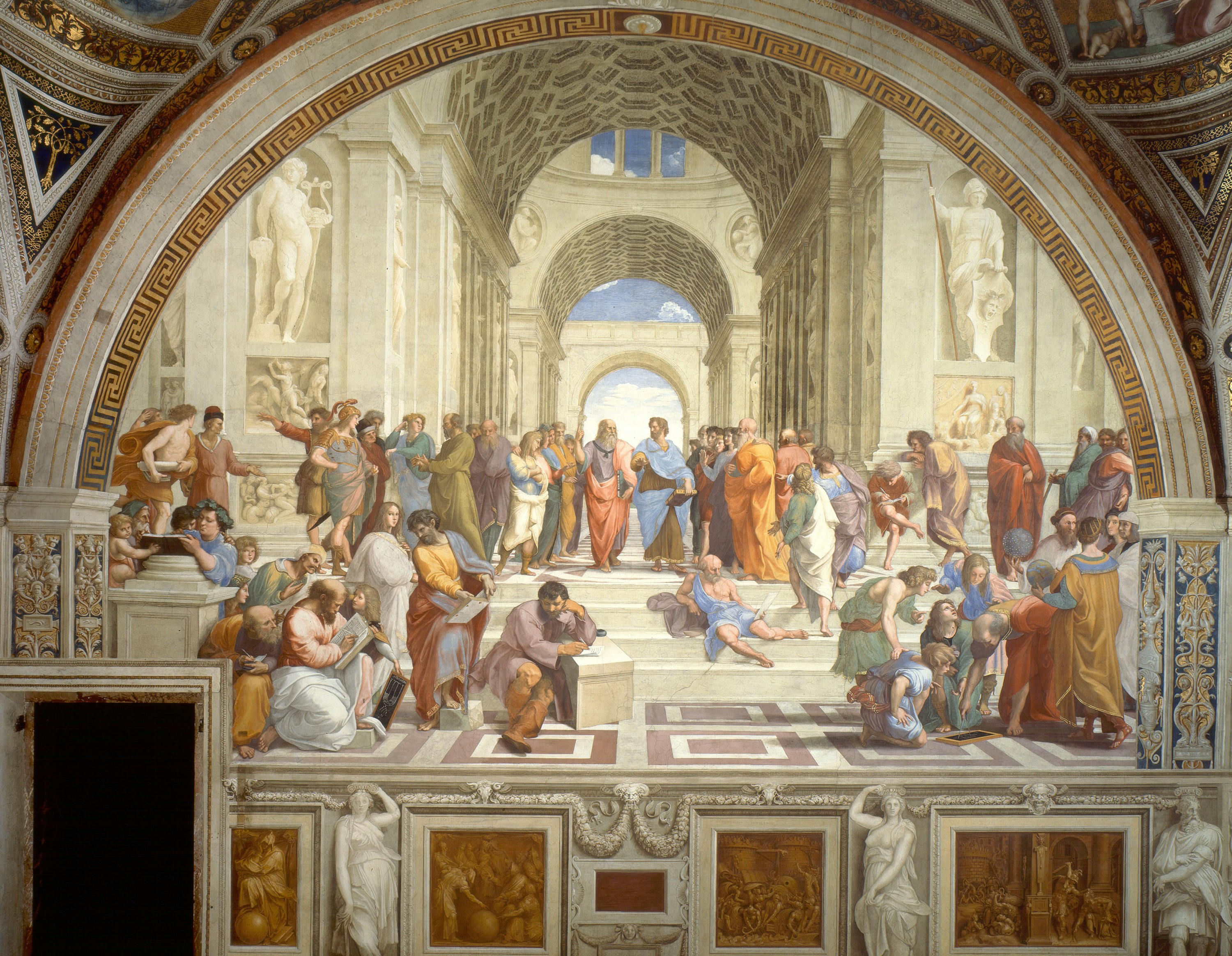
PHIL 101 A: TR 08:00–09:15 and PHIL 101 B: TR 09:30–10:45*
An examination of the existence and nature of God, the finality of death, and the meaning of life. We will begin by examining the traditional, theistic conception of God. Once we have determined what God is supposed to be like, we will attempt to identify and evaluate the best reasons for thinking that this being does or does not exist. We will subsequently take up the question of whether it is reasonable to hope for life after death. This will require us to take up the mind/body problem, i.e., the problem of determining what the relationship is between us, our minds, and our bodies. In the final segment of the course we will examine questions pertaining to the meaning of life (e.g., What, if anything, makes a life meaningful? Is there an objective fact as to whether is a given life is meaningful, or is this relative in some significant way? Is the meaning of life contingent upon the existence of God and an afterlife?). We will examine both theistic and nontheistic answers to these questions.
"The School of Athens" by Raffaello Sanzio. *This class offers two sections.
Phil 101 C: Topics in Philosophy: The Meaning of Life
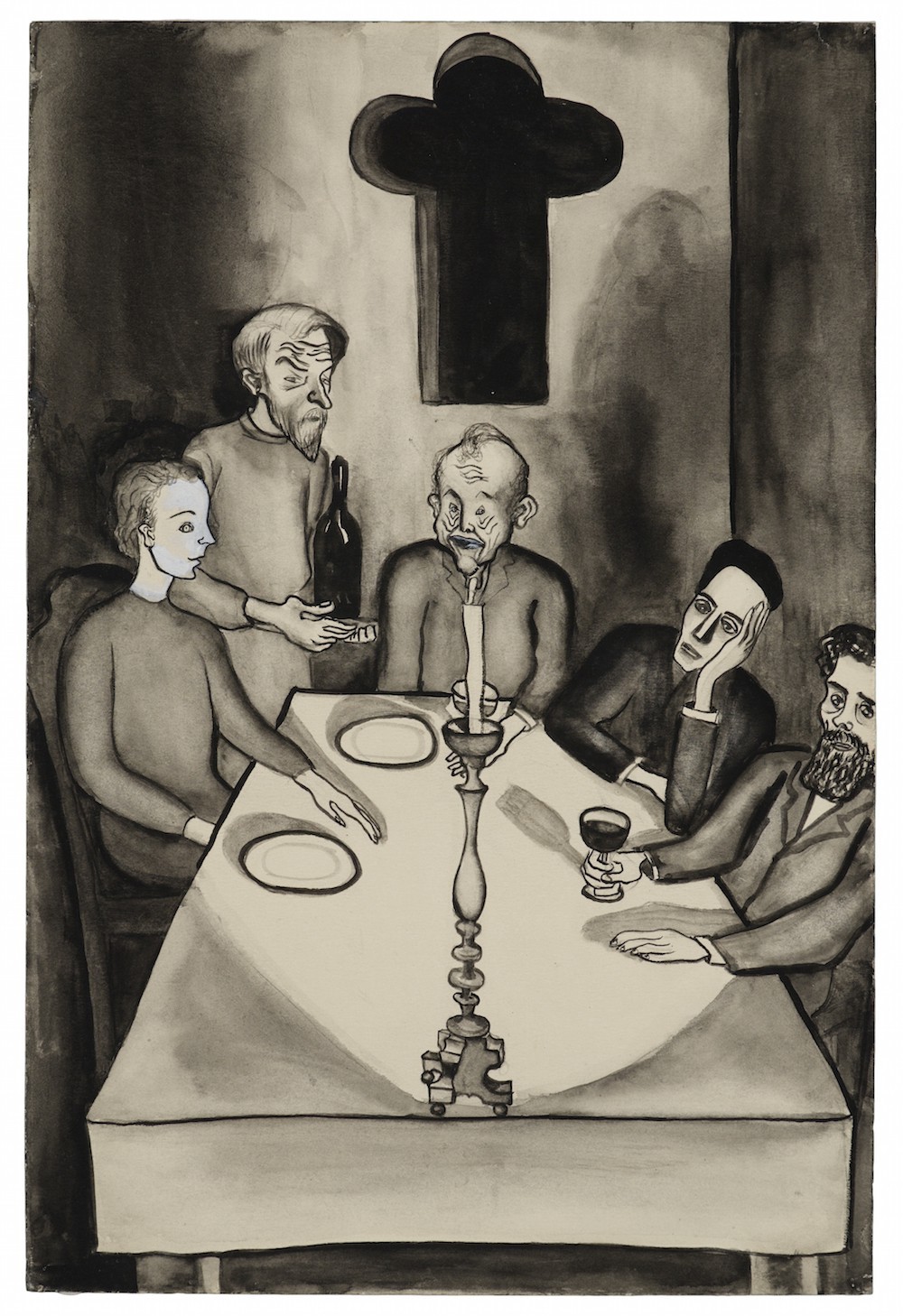
MW 14:00–15:15
This course will examine a variety of philosophical and literary perspectives on the meaning of human life. Central to this question is the question of what makes life worth living. If we look to the billion-dollar advertising industry or to world history, it would appear that what makes life worth living is wealth, power, and status. The authors we will read in this course, including Socrates, Pascal, Confucius, and Wendell Berry, offer their own distinctive counter-cultural philosophical challenges to this prevailing paradigm. In this class, we will examine these philosophical challenges to the prevailing ethics of the powerful elite, whether Greek, European, Chinese, or American.
ALICE NEEL, UNTITLED (KARAMAZOV, HIS THREE SONS, AND THE SERVANT GREGORY), CA. 1938, 14 ¼” X 10”. © THE ESTATE OF ALICE NEEL. COURTESY DAVID ZWIRNER, NEW YORK/LONDON.
Phil 190 A: Informal Logic and Critical Thinking
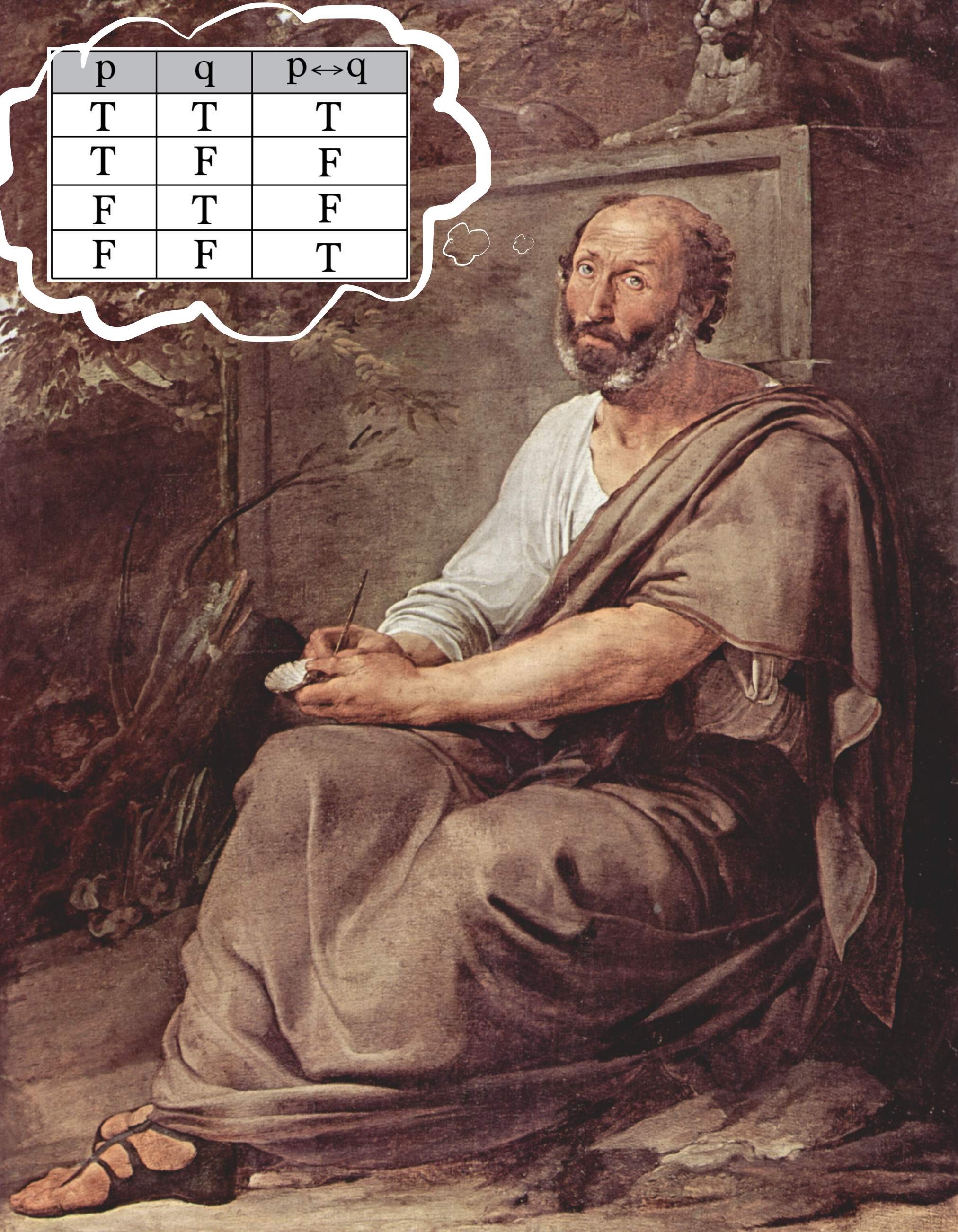
MWF 13:00–13:50
An introductory study of classical logic, symbolic logic, and informal reasoning.
Original Piece "Aristoteles" (1811) by Francesco Hayez (1791–1882).
Phil 203 A: Ancient Philosophy from Homer to Augustine
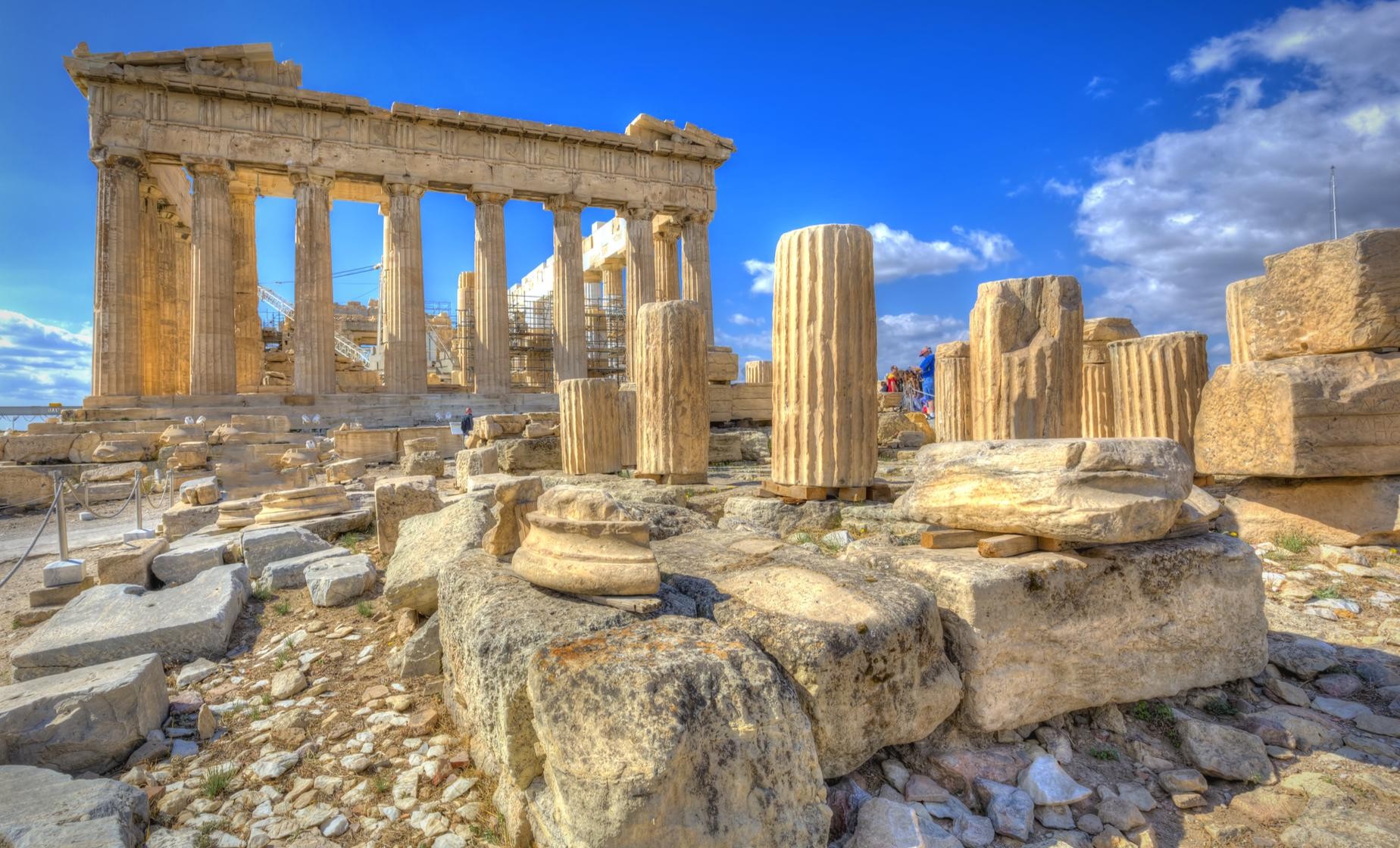
TR 15:30–16:55
This course will examine one of the most creative and diverse eras in the history of critical thinking: ancient Greek and Roman philosophy and literature from Homer to Augustine. Special attention will be given to how ancient thinkers understood the nature of happiness or the good life, the nature of the cosmos, and the nature and limits of human reason.
PHIL 205 A: Freedom, Justice, and Commerce

MWF 11:00am - 11:50am
In the early stages of the Covid-19 pandemic, two brothers in Chattanooga drove around dollar stores and pharmacies across the region and bought up all of the hand sanitizer that they could find. They piled up all of the hand sanitizer in boxes in a storage locker, then put it back on sale on Amazon for up to $70 a bottle. When the New York Times ran a story about Matt and Noah Colvin’s scheme it led to widespread outrage and an investigation by the Tennessee state’s attorney. Was this reaction justified? Did the Colvin brothers really do anything wrong? Isn’t the practice of entrepreneurs looking to exploit gaps in the market precisely the way that capitalism is supposed to work?
In this class, we will explore the fundamental philosophical questions that stories like this one force us to confront. What role should the free market play in our society? What right – if any – does the government have to interfere in the operations of the market? Are there some things that should never be bought or sold at all? Can the inequalities between rich and poor in our society be justified, and if so, how large should those inequalities be allowed to grow? We’ll read classic texts by Rousseau, Locke, Smith, and Marx, as well as more recent work by philosophers like Michael Sandel and Iris Marion Young. Along the way, we’ll connect abstract philosophical questions to concrete issues like climate change, corporate bailouts, and price gouging.
PHIL 215 A: Chinese Philosophy
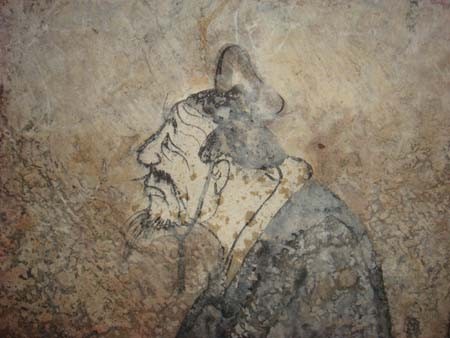
TR 09:30–10:45
An examination of philosophical texts of classical Confucianism and Taoism. Emphasis will be given to the cultural context of these texts and to the evaluation of the worldview they articulate.
Confucius, fresco from a Western Han tomb of Dongping County, Shandong province.
PHIL 232 A: Business Ethics

TR 11:00–12:15
There’s a long tradition in philosophy of questioning whether we see things as they truly are, or instead are taken in by illusions or appearances that conceal from us the true nature of things. Business ethics might seem like an odd place for raising such questions, but part of the thesis of this course is that our understanding of business and how we ought to behave within it is fueled by assumptions and possibly misconceptions about the nature of business and human nature itself, with the result that we see both ourselves and business not as they in fact are or must be, but as we often mistakenly imagine them to be.
PHIL 232 B: Business Ethics
Dr. Ott
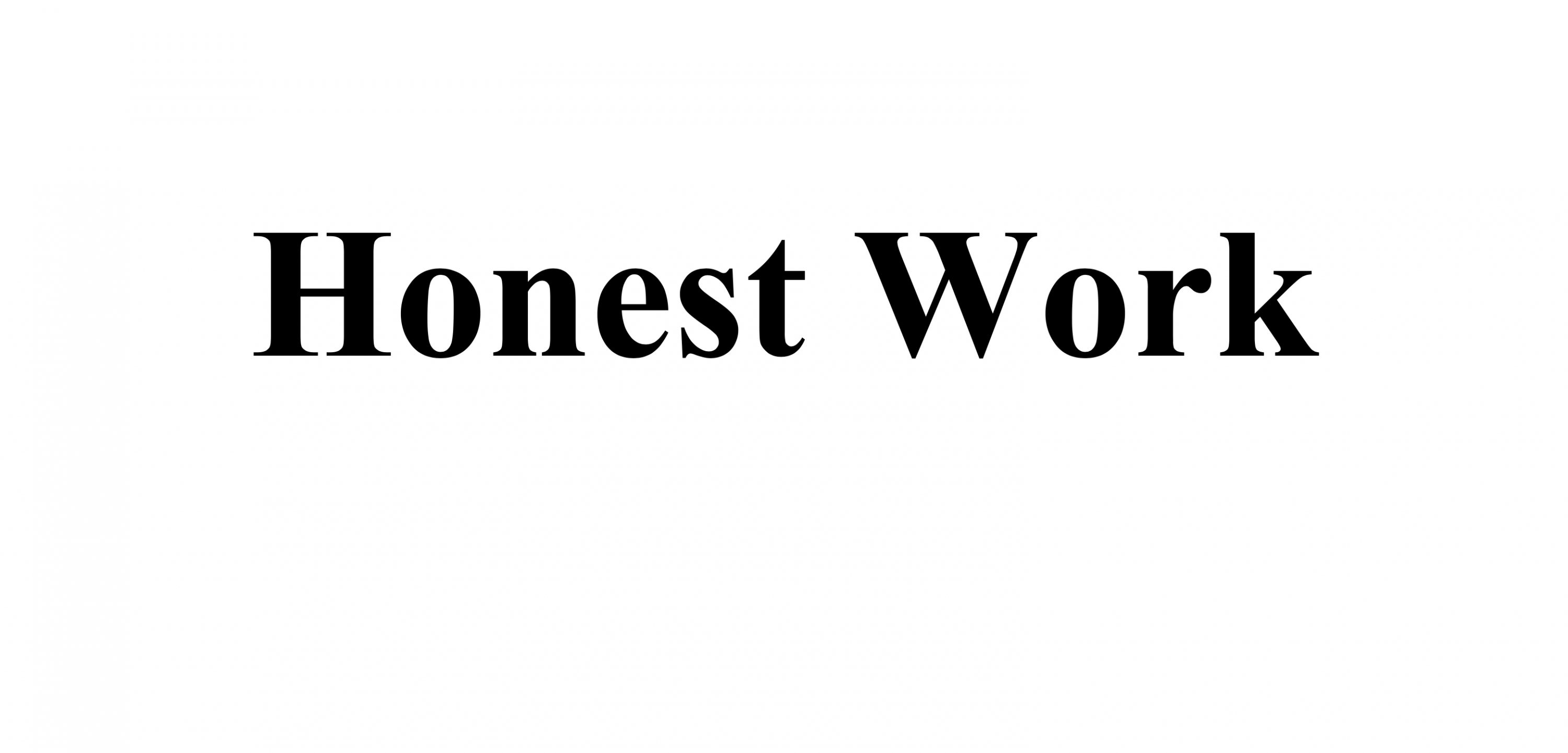
TR 13:30–14:45
In this class, we will study and discuss several of the major topics in the field of business ethics. All ethics basically deals with how we should live our lives and treat each other. Business ethics will cover how our more general understanding of a good, moral life applies to situations encountered in our business lives. The goal is to help you develop your own views on ethical behavior so that you can make better decisions as you embark upon your careers.
PHIL 308 A: Metaphysics

TR 13:30–14:45
This course will explore one of the most fascinating and challenging philosophical problems, the problem of free will. In the most basic sense, we have free will if we have the kind of control over our actions that warrants our being held morally responsible for the choices we make. Free will would seem to imply that our actions are truly “up to us,” rather than the result of forces outside of our control. But what kind of power of self-determination, what kind of “up to us,” is really necessary for free will?
Some philosophers argue that all of our decisions are causally determined such that the laws of nature and the antecedent conditions of the world necessitate our decisions and actions. If all of our actions are determined in this manner, do we still in some significant sense have free will, and would we be justified in holding ourselves and others morally responsible for our behavior? Other philosophers contend that our possession of free will means that we have the power to determine our own futures, to shape our own character by freely choosing among alternative future possibilities. But do we in fact possess such power? And is possessing this power of directing our own lives necessary for free will?
In this course, we will seek to understand and evaluate a diversity of philosophical perspectives on these and other questions related to free will and moral responsibility. How a person answers these questions will deeply influence his or her vision of the meaning of human life, the nature of the self, and the character of personal relationships.
PHIL 315 A: Reason, Desire, and the Good

TR 11:00am - 12:15pm
If I show no regard for the feelings of others, you might describe me as callous or cruel, but would it also make sense to describe me as irrational? Some philosophers have denied this, claiming that I only have reason to do whatever serves my existing motivations. If I have no desire to act morally, then I have no reason to do so either. Other philosophers have argued that a person who ignores moral considerations is guilty of a kind of rational defect; such a person is failing to see the importance of something that any fully rational agent would recognize. In this class, we will use this debate as an entry point into some of the most important and influential work in contemporary moral philosophy. We will look at Bernard Williams’s attempt (influenced by Hume) to pull morality and rationality apart, and Philippa Foot’s attempt (influenced by Aristotle) to put them back together again. In the final section of the class, we will consider a very different perspective on the debate by taking up the suggestion – made in different ways by Raimond Gaita and Iris Murdoch – that the failure to show due regard for others is not so much a failure of reason as a failure of love.
PHIL 337 A: Philosophy of Science

MW 15:30–16:45
A philosophical examination of the goals and methods of the natural sciences. Special attention is given to contemporary debates surrounding the following questions: How do we distinguish between science and non-science? What is the nature of scientific inference? How are scientific theories related to observational data? Are all natural sciences reducible to physics? What is the ontological status of unobservable, theoretical entities? How should we understand the relation between science and religion?
Sprightly Pedagogue.

